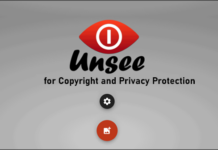
In the modern age, the most successful businesses are those which effectively leverage technology to expand their operations and increase their revenue potential. As such, it makes sense for developing companies to focus on digital channels as their primary route to sustained growth and success.
At the same time, there are factors that can make digital business a challenging endeavor for stakeholders. The sheer abundance of competition online can make it difficult to gain momentum, for instance, while activities like ad fraud can cause brands to lose out on investment and potential profits.
With the digital marketplace being such a volatile environment, it makes to seek solutions that can help you to get a grip on these variables and provide your business with the stability it needs to flourish. For this reason, a static residential proxy is a tool that no modern business should do without.
What is a static residential proxy?
The term residential proxy refers to a server which enables users to utilize an IP address separate from their own.
Normally, when a user accesses the internet, their IP address is visible to ISPs and, crucially, to the websites they connect to. With this IP address, these parties can recognize that user’s device and determine their geographic location. This enables websites to apply geo-based restrictions and block users from their sites.
A residential proxy allows a user to reroute their connection and use an alternate IP address so as to appear as a typical user in a different geographical location, thus circumventing such issues. Residential proxy IPs, unlike data center IPs, are genuine addresses assigned by ISPs (Internet Service Providers), which means that users can stay anonymous while maintaining an authentic online presence.
There are two primary types of residential proxy IP: dynamic and static. Dynamic IP addresses are ones which can change. This means that when a user utilizes a dynamic residential proxy, their exact IP address will differ each time they connect to the Internet. A static IP address, as the name suggests, is the opposite of this. A static residential proxy provides users with a fixed IP address that has been configured for a specific reason.
Typically, dynamic IP dresses are considered more suitable for use on a home network, while static ones are preferable for business purposes.
Why is a static residential proxy essential for business?
A static residential proxy can have a number of important benefits for your business, including the following:
- Speed and reliability
When carrying out business-related processes online, you want to ensure that you have a stable and fast connection at your disposal at all times. This is something that a static residential proxy excels at providing.
Since a static IP doesn’t change with successive connections, it allows you to avoid potential interruptions that sometimes occur with dynamic IPs. This allows you to maintain a high level of consistency and efficiency in all of your digital business processes.
- Improved data collection capability
As was mentioned above, the competitive nature of the digital marketplace puts a lot of pressure on companies nowadays. You’re going to want to give your business every possible advantage, and that means collecting information about your competitors through scraping.
Despite scarping being a legitimate means of information gathering, websites will try to block you from engaging in this activity. The stability and authenticity that a static residential proxy provides will allow you to conduct scraping consistently so that you can gain actionable insights into your market.
- Protection in anonymity
Cybersecurity is a major concern for every business, but this is especially for growing enterprises that might struggle to recover from a data breach. Such breaches often occur once cybercriminals have gained access to the IP address of a business, but using a static residential proxy can help to prevent this.
By concealing your real IP and allowing you to browse online with anonymity, a static residential IP will give you an extra layer of protection against cyberattacks that could potentially set your business back.
- Ad verification
Online advertising can be tricky to negotiate due to the existence of ad fraud. Nowadays, it’s common for brands to pay for advertising impressions only to be scammed by fraudsters who use ad stacking to create the impression that the product in question is being advertised. Naturally, this can be extremely detrimental to a business.
By employing a static residential proxy, however, you can use an alternate IP address to your advertisement as a normal user in its target region. This can allow you to verify that your ad is being displayed appropriately so that you can avoid being defrauded.
Choosing the best residential proxy for your business
When choosing a proxy provider, it’s important to consider aspects like price and IP pool size. Moreover, it’s advisable to research the different features available. Depending on your needs, you may wish to avail of functions like IP rotation, for instance, so you should check what your provider offers.
A residential proxy can give you the freedom to engage in a wide variety of important online activities. By finding the right one for your needs, you can take your digital business to the next level.








